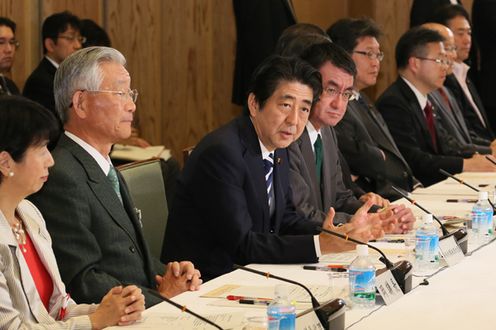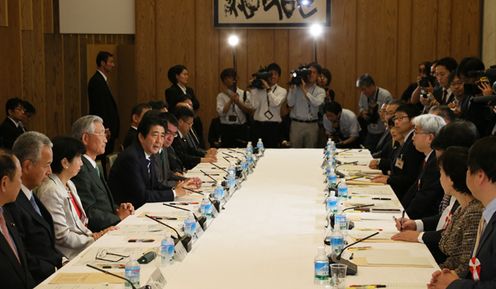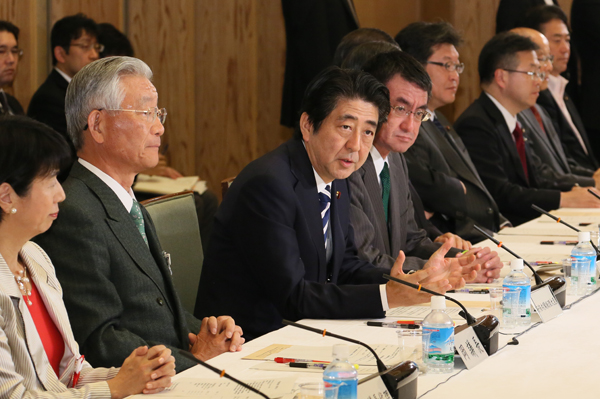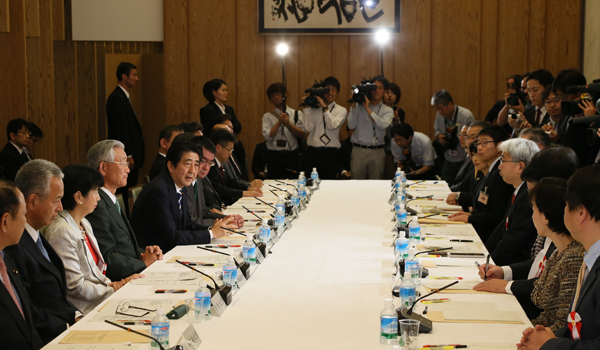Home > News > The Prime Minister in Action > October 2015 > Regulatory Reform Council
The Prime Minister in Action
Regulatory Reform Council
October 15, 2015

Photograph of the Prime Minister delivering an address (1)

Photograph of the Prime Minister delivering an address (2)
[Provisional Translation]
Prime Minister Shinzo Abe attended the 50th meeting of the Regulatory Reform Council at the Prime Minister’s Office
During the meeting, discussion took place on the approach of the Regulatory Reform Council and the intensive proposal receipt system of the regulatory reform hotline.
Based on the discussion, the Prime Minister said in his address,
“This is no end to regulatory reform. In aiming to achieve Japan’s greatest postwar economy with a GDP of 600 trillion yen, we must usher in a productivity revolution and ensure that it takes hold in a variety of fields. Going forward, we will reform systems that impede these efforts and treat no area as sacred or off-limits.
Companies and individuals can make great changes if their potential is unleashed.
For example, the easing of visa regulations has led the number of tourists from foreign countries to increase by several million people. Duty free shops have expanded their range of products eligible for tax exemption, and the relevant procedures can now be carried out all at once for entire shopping districts. As a result of this, the number of such shops has doubled in six months.
An urgent issue currently appears to be how to ensure that there are sufficient lodging facilities. As such, we will reform regulations related to ‘services in which private residences temporarily take lodgers.’ Based on the precedent of National Strategic Special Zones, we intend to collaborate closely with the Council on National Strategic Special Zones and achieve a breakthrough.
We will continue to identify issues related to highly effective regulatory reforms in a variety of other fields as well. I ask for your continued cooperation regarding our bold proposals in areas including investment promotion, employment, health and medical care, agriculture, and regional revitalization, with a view to creating a society in which all one hundred million-plus citizens are each dynamically engaged.”


